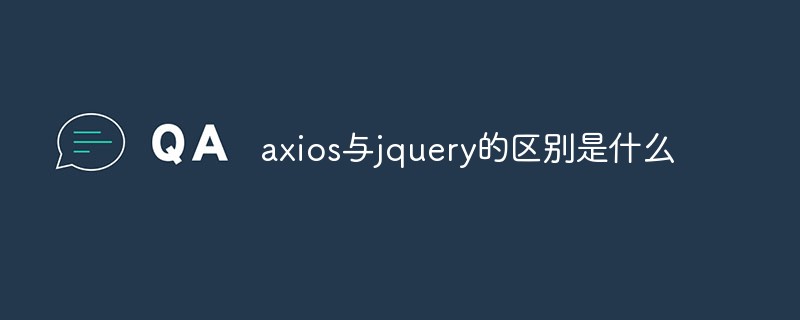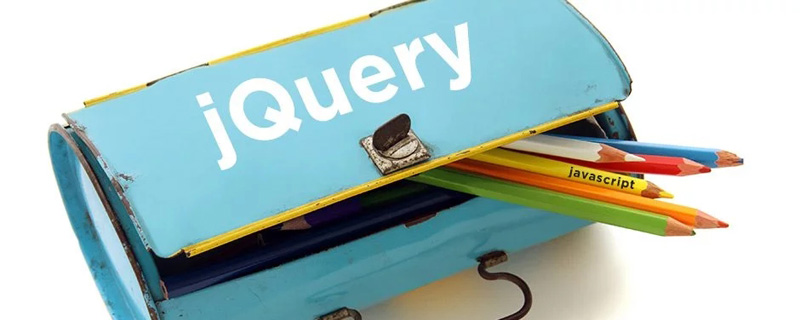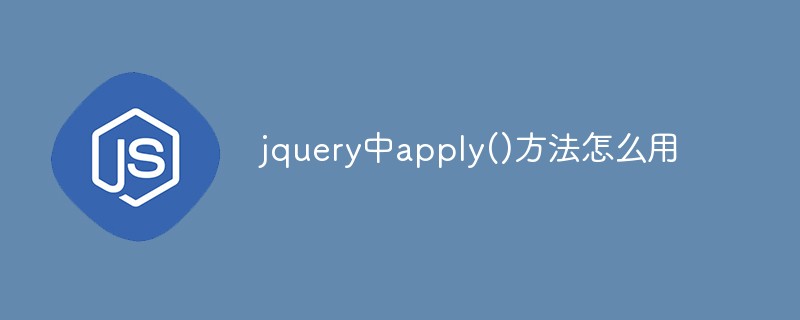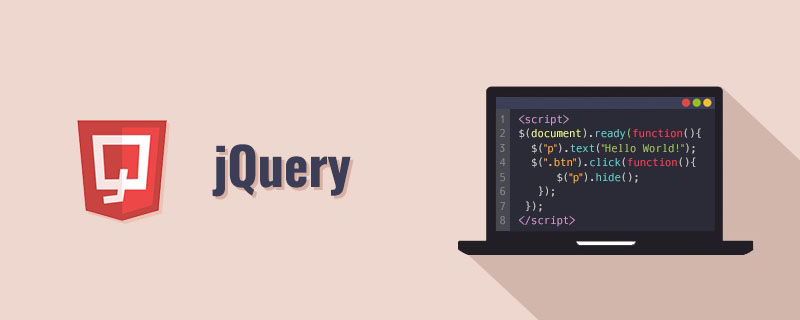Usage of Jquery's $.ajax:
jQuery.ajax( options ): Load remote data through HTTP requests. This is the underlying AJAX implementation of jQuery . For simple and easy-to-use high-level implementations, see $.get, $.post, etc.
$.ajax() returns the XMLHttpRequest object it created. In most cases you will not need to manipulate this object directly, but in special cases it can be used to manually terminate the request.
Note: If you specify the dataType option, make sure the server returns the correct MIME information (e.g. xml returns "text/xml"). Incorrect MIME types can cause unpredictable errors. See Specifying the Data Type for AJAX Requests.
When the datatype is set to 'script', all remote (not in the same domain) POST requests will be converted to GET.
$.ajax() has only one parameter: parameter key/value object, including each configuration and callback function information. See detailed parameter options below.
In jQuery 1.2, you can load JSON data across domains. When using it, you need to set the data type to JSONP. When calling a function using JSONP format, such as "myurl?callback=?" jQuery will automatically replace ? with the correct function name to execute the callback function. When the data type is set to "jsonp", jQuery will automatically call the callback function. (I don’t understand this very well)
jquery ajax parameter list:
url(String)
(Default: current page address) The address to send the request.
type(String)
Request method (there are two parameters: "POST" and "GET"), the default is "GET". Note: Other HTTP request methods such as PUT and DELETE can also be used, but are only supported by some browsers.
timeout(Number)
Set the request timeout (milliseconds). This setting overrides the global setting.
async(Boolean)
(Default: true) When set to true, all requests are asynchronous requests. If you need to send synchronous requests, set this option to false. Note that a synchronous request will lock the browser, and the user must wait for the request to complete before other operations can be performed.
beforeSend(Function)
You can modify the functions of the XMLHttpRequest object before sending the request, such as adding custom HTTP headers. The XMLHttpRequest object is the only parameter.
function(XMLHttpRequest){ this; // the options for this ajax request}
cache(Boolean)
Whether to cache the request results (default: true) , setting it to false will not load the request information from the browser cache. Note that it is best to set it to false in the early stages of development, otherwise it will be inconvenient to debug.
complete(Function)
Callback function after the request is completed (called when the request succeeds or fails). Parameters: XMLHttpRequest object, success information string.
function(XMLHttpRequest,textStatus){
this;//theoptionsforthisajaxrequest
}contentType(String)
(Default: " application/x-www-form-urlencoded") Content encoding type when sending information to the server. The default value is suitable for most applications.
data(Object,String)
Data sent to the server. Will be automatically converted to request string format. Appended to the URL in GET requests. See the processData option description to disable this automatic conversion. Must be in Key/Value format. If it is an array, jQuery will automatically assign the same name to different values. For example, {foo:["bar1", "bar2"]} is converted to '&foo=bar1&foo=bar2'.
dataType(String)
Define the data type returned by the server. If not specified, jQuery will automatically return responseXML or responseText based on the HTTP packet MIME information and pass it as a callback function parameter. Available values:
"xml": Returns XML format data, which can be processed by jQuery.
"html": Returns plain text HTML format data; can contain script elements.
"script": Returns plain text JavaScript code. Results are not cached automatically.
"json": Returns JSON data.
"jsonp": JSONP format. When calling a function using JSONP format, such as "myurl?callback=?" jQuery will automatically replace ? with the correct function name to execute the callback function.
error(Function)
(Default: automatic judgment (xml or html)) This method will be called when the request fails. This method takes three parameters: the XMLHttpRequest object, the error message, and (possibly) the captured error object.
The code is as follows
function(XMLHttpRequest,textStatus,errorThrown){
//通常情况下textStatus和errorThown只有其中一个有值
this;//theoptionsforthisajaxrequest
}global(Boolean)
是否触发全局 AJAX 事件(默认: true) 。设置为 false 将不会触发全局 AJAX 事件,如 ajaxStart 或 ajaxStop 。可用于控制不同的Ajax事件
ifModified(Boolean)
(默认: false) 仅在服务器数据改变时获取新数据。使用 HTTP 包 Last-Modified 头信息判断。
processData(Boolean)
设置发送数据的信息格式(默认: true),设置为 true 的时候发送的数据将被转换为对象(技术上讲并非字符串) 以配合默认内容类型 "application/x-www-form-urlencoded"。如果要发送 DOM 树信息或其它不希望转换的信息,请设置为 false。
success(Function)
请求成功后回调函数。这个方法有两个参数:服务器返回数据,返回状态
代码如下:
function(data,textStatus){
//datacouldbexmlDoc,jsonObj,html,text,etc...
this;//theoptionsforthisajaxrequest
}下面以一则示例解释一下该方法的具体的用法:
$.ajax({
type:'get',
url:'http://www.www.daimajiayuan.com/rss',
beforeSend:function(XMLHttpRequest){
//ShowLoading();
},
success:function(data,textStatus){
$('.ajax.ajaxResult').html('');
$('item',data).each(function(i,domEle){
$('.ajax.ajaxResult').append(''+$(domEle).children('title').text()+'');
});
},
complete:function(XMLHttpRequest,textStatus){
//HideLoading();
},
error:function(){
//请求出错处理
}
});Jquery的$.post的用法:
3. jQuery.post( url, [data], [callback], [type] ) :使用POST方式来进行异步请求
jquery $.post 方法参数列表(说明):
url (String) : 发送请求的URL地址.
data (Map) : (可选) 要发送给服务器的数据,以 Key/value 的键值对形式表示,可将此值放到url中。
callback (Function) : (可选) 载入成功时回调函数(只有当Response的返回状态是success才能调用该方法)。
type (String) : (可选)客户端请求的数据类型(JSON,XML,等等)
这是一个简单的 POST 请求功能以取代复杂 $.ajax ,请求成功时可调用回调函数。如果需要在出错时执行函数,请使用 $.ajax。
下面是一个使用$.post的简单示例代码:
$.post(
'http://www.daimajiayuan.com/ajax.php',
{Action:"post",Name:"lulu"},
function(data,textStatus){
//data可以是xmlDoc,jsonObj,html,text,等等.
//this;//这个Ajax请求的选项配置信息,请参考jQuery.get()说到的this
alert(data.result);
},
"json"//这里设置了请求的返回格式为"json"
);如果你设置了请求的格式为"json",此时你没有设置Response回来的ContentType 为:Response.ContentType = "application/json"; 那么你将无法捕捉到返回的数据。
注意,上面的示例中 alert(data.result); 由于设置了Accept报头为"json",这里返回的data就是一个对象,因此不需要用eval()来转换为对象。
以上所述就是本文的全部内容了,希望大家能够喜欢。
【相关教程推荐】
1. JavaScript视频教程
2. JavaScript在线手册
3. bootstrap教程
 jquery实现多少秒后隐藏图片Apr 20, 2022 pm 05:33 PM
jquery实现多少秒后隐藏图片Apr 20, 2022 pm 05:33 PM实现方法:1、用“$("img").delay(毫秒数).fadeOut()”语句,delay()设置延迟秒数;2、用“setTimeout(function(){ $("img").hide(); },毫秒值);”语句,通过定时器来延迟。
 axios与jquery的区别是什么Apr 20, 2022 pm 06:18 PM
axios与jquery的区别是什么Apr 20, 2022 pm 06:18 PM区别:1、axios是一个异步请求框架,用于封装底层的XMLHttpRequest,而jquery是一个JavaScript库,只是顺便封装了dom操作;2、axios是基于承诺对象的,可以用承诺对象中的方法,而jquery不基于承诺对象。
 jquery怎么修改min-height样式Apr 20, 2022 pm 12:19 PM
jquery怎么修改min-height样式Apr 20, 2022 pm 12:19 PM修改方法:1、用css()设置新样式,语法“$(元素).css("min-height","新值")”;2、用attr(),通过设置style属性来添加新样式,语法“$(元素).attr("style","min-height:新值")”。
 jquery怎么在body中增加元素Apr 22, 2022 am 11:13 AM
jquery怎么在body中增加元素Apr 22, 2022 am 11:13 AM增加元素的方法:1、用append(),语法“$("body").append(新元素)”,可向body内部的末尾处增加元素;2、用prepend(),语法“$("body").prepend(新元素)”,可向body内部的开始处增加元素。
 jquery怎么删除div内所有子元素Apr 21, 2022 pm 07:08 PM
jquery怎么删除div内所有子元素Apr 21, 2022 pm 07:08 PM删除方法:1、用empty(),语法“$("div").empty();”,可删除所有子节点和内容;2、用children()和remove(),语法“$("div").children().remove();”,只删除子元素,不删除内容。
 jquery中apply()方法怎么用Apr 24, 2022 pm 05:35 PM
jquery中apply()方法怎么用Apr 24, 2022 pm 05:35 PM在jquery中,apply()方法用于改变this指向,使用另一个对象替换当前对象,是应用某一对象的一个方法,语法为“apply(thisobj,[argarray])”;参数argarray表示的是以数组的形式进行传递。
 jquery怎么去掉只读属性Apr 20, 2022 pm 07:55 PM
jquery怎么去掉只读属性Apr 20, 2022 pm 07:55 PM去掉方法:1、用“$(selector).removeAttr("readonly")”语句删除readonly属性;2、用“$(selector).attr("readonly",false)”将readonly属性的值设置为false。
 jquery on()有几个参数Apr 21, 2022 am 11:29 AM
jquery on()有几个参数Apr 21, 2022 am 11:29 AMon()方法有4个参数:1、第一个参数不可省略,规定要从被选元素添加的一个或多个事件或命名空间;2、第二个参数可省略,规定元素的事件处理程序;3、第三个参数可省略,规定传递到函数的额外数据;4、第四个参数可省略,规定当事件发生时运行的函数。


Hot AI Tools

Undresser.AI Undress
AI-powered app for creating realistic nude photos

AI Clothes Remover
Online AI tool for removing clothes from photos.

Undress AI Tool
Undress images for free

Clothoff.io
AI clothes remover

AI Hentai Generator
Generate AI Hentai for free.

Hot Article

Hot Tools

ZendStudio 13.5.1 Mac
Powerful PHP integrated development environment

mPDF
mPDF is a PHP library that can generate PDF files from UTF-8 encoded HTML. The original author, Ian Back, wrote mPDF to output PDF files "on the fly" from his website and handle different languages. It is slower than original scripts like HTML2FPDF and produces larger files when using Unicode fonts, but supports CSS styles etc. and has a lot of enhancements. Supports almost all languages, including RTL (Arabic and Hebrew) and CJK (Chinese, Japanese and Korean). Supports nested block-level elements (such as P, DIV),

SecLists
SecLists is the ultimate security tester's companion. It is a collection of various types of lists that are frequently used during security assessments, all in one place. SecLists helps make security testing more efficient and productive by conveniently providing all the lists a security tester might need. List types include usernames, passwords, URLs, fuzzing payloads, sensitive data patterns, web shells, and more. The tester can simply pull this repository onto a new test machine and he will have access to every type of list he needs.

WebStorm Mac version
Useful JavaScript development tools

DVWA
Damn Vulnerable Web App (DVWA) is a PHP/MySQL web application that is very vulnerable. Its main goals are to be an aid for security professionals to test their skills and tools in a legal environment, to help web developers better understand the process of securing web applications, and to help teachers/students teach/learn in a classroom environment Web application security. The goal of DVWA is to practice some of the most common web vulnerabilities through a simple and straightforward interface, with varying degrees of difficulty. Please note that this software






